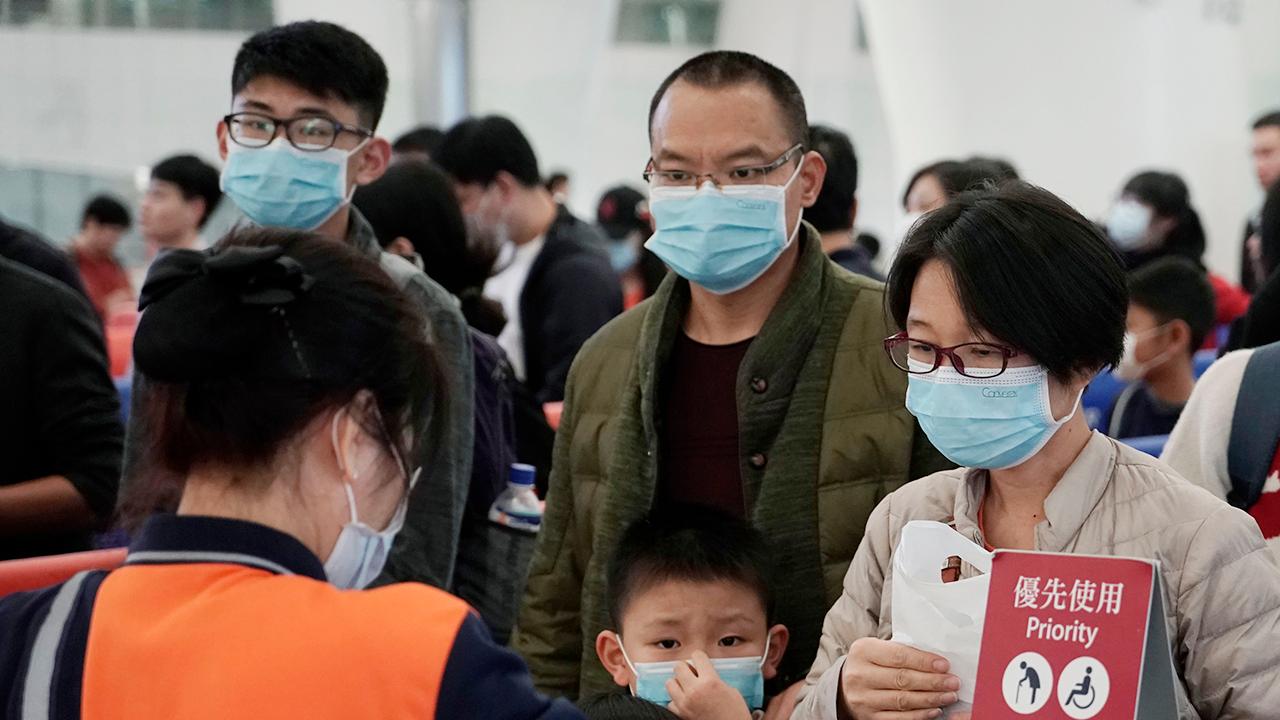US probes University of Texas links to Chinese lab scrutinized over coronavirus
The letter is also looking at the university's ties to Huawei and Zoom
The Education Department has asked the University of Texas System to provide documentation of its dealings with the Chinese laboratory U.S. officials are investigating as a potential source of the coronavirus pandemic.
The request for records of gifts or contracts from the Wuhan Institute of Virology and its researcher Shi Zhengli, known for her work on bats, is part of a broader department investigation into possible faulty financial disclosures of foreign money by the Texas group of universities.
The Education Department’s letter, reviewed by The Wall Street Journal, also asks the UT System to share documents regarding potential ties to the ruling Chinese Communist Party and some two dozen Chinese universities and companies, including Huawei Technologies Co. and a unit of China National Petroleum Corp.
VARNEY: FOX NEWS BROKE CHINA CORONAVIRUS STORY WIDE OPEN
The department is also seeking documents related to any university system contracts or gifts from Eric Yuan, a U.S. citizen who is the chief executive officer of Zoom Video Communications Inc.
| Ticker | Security | Last | Change | Change % |
|---|---|---|---|---|
| ZM | ZOOM COMMUNICATIONS INC. | 92.20 | +3.12 | +3.50% |
An official at the University of Texas System said it plans to respond to the department in a timely manner and declined to provide information about any potential links to the entities mentioned in the letter.
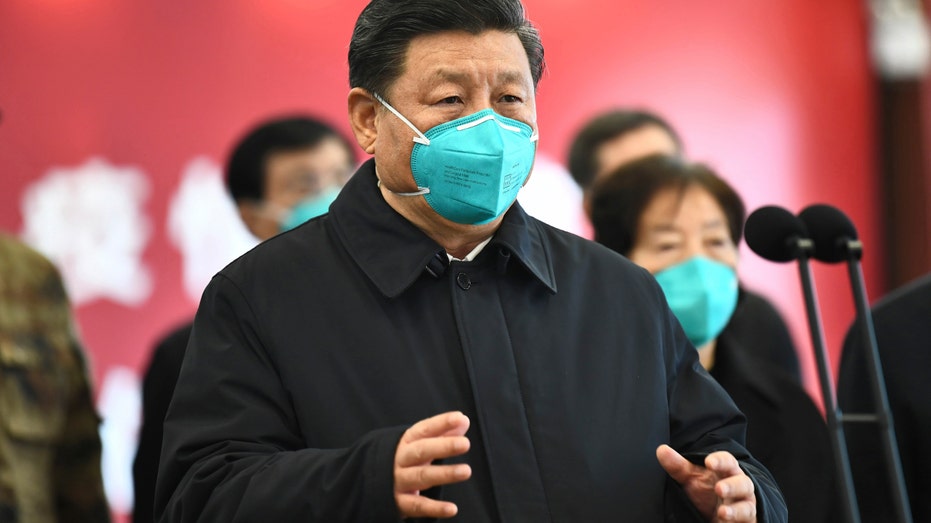
In this Tuesday, March 10, 2020, photo released by China's Xinhua News Agency, Chinese President Xi Jinping talks by video with patients and medical workers at the Huoshenshan Hospital in Wuhan in central China's Hubei Province. (Xie Huanchi/Xinhua v
Huawei and CNPC didn’t respond to requests for comment. A spokesperson for Zoom said Mr. Yuan has “not given any gifts to the University of Texas.”
Neither the Wuhan lab nor Dr. Shi—dubbed “Bat Woman” by Chinese media—responded to requests for comment.
The Wuhan lab has come under scrutiny from U.S. officials who accuse Beijing of withholding information about the origins of the outbreak, which was first detected in Wuhan.
Dr. Shi and the Chinese government have said the lab isn’t the source of the pandemic. There is no concrete public evidence to confirm the theory that the outbreak resulted from an accident at the lab, which studied ways to prevent the spread of infectious diseases.
US INTEL: CORONAVIRUS NOT MAN-MADE, STILL STUDYING LAB THEORY
Some scientists say a lab accident remains a possibility, but the current dominant theory is that bats passed the virus to humans either directly, or more likely, through another animal.
The Education Department’s investigation into the UT System’s disclosures is part of a continuing national review begun in 2019 that the department says has prompted universities to report more than $6.5 billion in previously undisclosed foreign funding. Officials have sent letters to at least eight other schools, including Harvard and Yale Universities, who have said they are responding to the inquiries.
Universities are required to disclose to the Education Department all contracts and gifts from a foreign source that, alone or combined, are worth $250,000 or more in a calendar year. Though the statute is decades old, the department only recently began to enforce it rigorously.
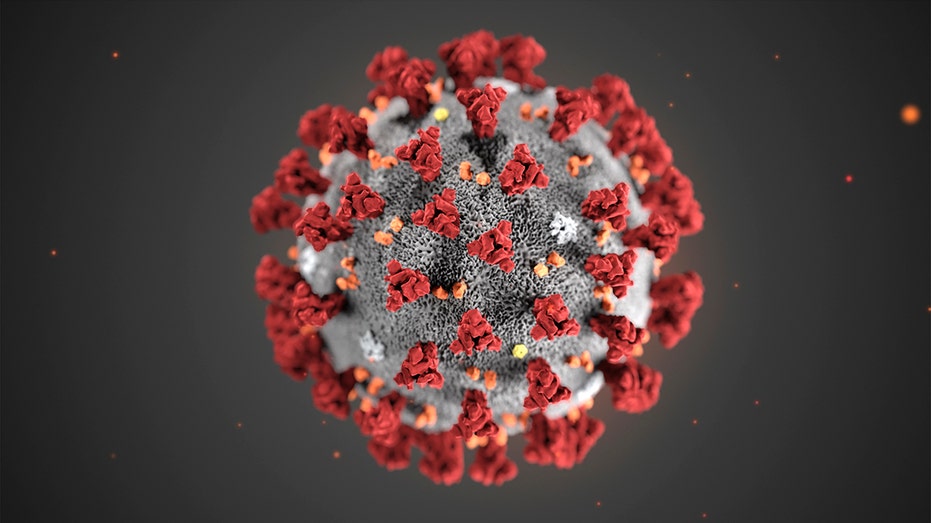
FILE - In this illustration provided by the Centers for Disease Control and Prevention (CDC) in January 2020 shows the 2019 Novel Coronavirus (2019-nCoV). (CDC via AP, File)
The Education Department has accused schools of actively soliciting money from foreign governments, companies and nationals hostile to the U.S. One goal of the new enforcement campaign, according to department officials, is to better enable the public to see where schools get their money.
U.S. universities have defended their international collaborations and said the Education Department’s reporting requirements remain unclear. Department officials dispute that claim.
In its letter dated April 24, the department asked the chancellor of the University of Texas System to provide records related to its dealings with the Wuhan lab, citing UT’s Galveston National Laboratory’s relationship with the Chinese government-run lab.
CORONAVIRUS IMPACT: STATE-BY-STATE RE-OPENINGS & RESTRICTIONS
The letter cites a November 2018 article in Science magazine cosigned by officials at the Galveston and Wuhan labs stating: “We engaged in short- and long-term personnel exchanges focused on biosafety training, building operations and maintenance, and collaborative scientific investigations in biocontainment. We succeeded in transferring proven best practices to the new Wuhan facility.”
The magazine article, also available on the Galveston lab’s site, adds that the Wuhan and Texas labs recently signed formal cooperative agreements but that “funding for research and the logistics of exchanging specimens are challenges that we have yet to solve.”
The university system previously reported to Education Department officials a series of contracts with Chinese universities and Huawei, purportedly collectively worth nearly $13 million, according to the letter. But it questioned whether the UT schools had reported all relevant foreign gifts and contracts.
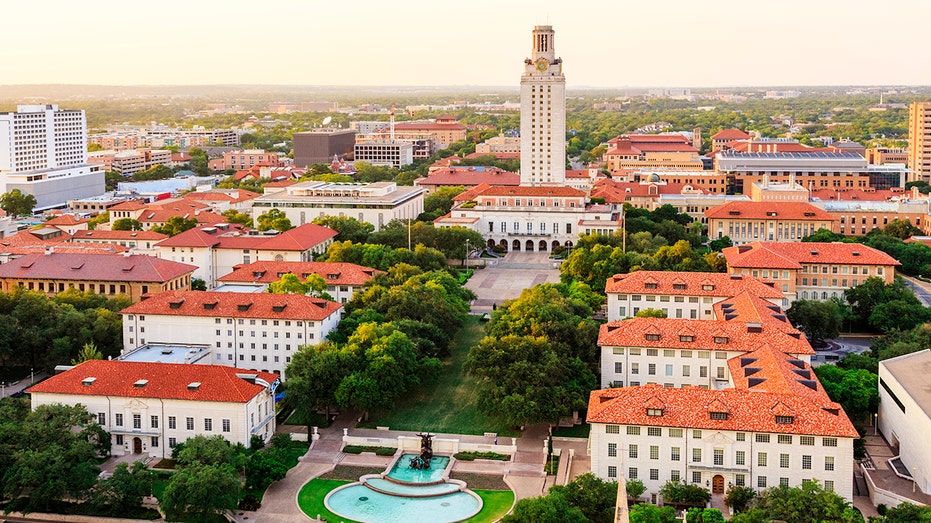
University of Texas Austin campus at sunset-dusk - aerial view / iStock
The request for information about the American chief executive of U.S. videoconferencing firm Zoom stands out on a list of otherwise Chinese entities.
The department has said its statutory authority enables it to seek information on gifts or contracts from any entity, including a U.S. person, who could be acting as an agent of a foreign source. Department officials believe the broad statute provides the basis for many lines of inquiry at universities, according to a person familiar with the department’s thinking.
U.S. national security officials and independent cybersecurity researchers have raised concerns about Zoom and its reliance on China-based engineering, especially as more people turn to the service amid the pandemic to discuss company and government business as well as private health information.
POMPEO QUESTIONS CORONAVIRUS INFORMATION: 'WE NEED TO UNDERSTAND WHAT HAS TAKEN PLACE'
Mr. Yuan has said the Chinese government has never asked for information on traffic from foreign users. “Zoom is no different than any other U.S. technology company with operations in China, including many of our videoconferencing peers,“ the company said in a statement. “Zoom is an American company, publicly traded on the Nasdaq, with headquarters in California and a founder and CEO who is an American citizen,” the statement said, adding that his inclusion in a letter focused on UT’s ties to China indicates the letter’s authors “did not do their homework.”
The Education Department’s scrutiny of money that could have flowed from the China-based lab to the U.S. comes after other U.S. officials criticized money that went in the opposite direction. In an April 21 letter to House and Senate leadership, members of Congress led by Sen. Martha McSally (R., Ariz.) and Rep. Matt Gaetz (R., Fla.) criticized a grant by the National Institutes of Health that supported global research on coronaviruses, including at the Wuhan lab.
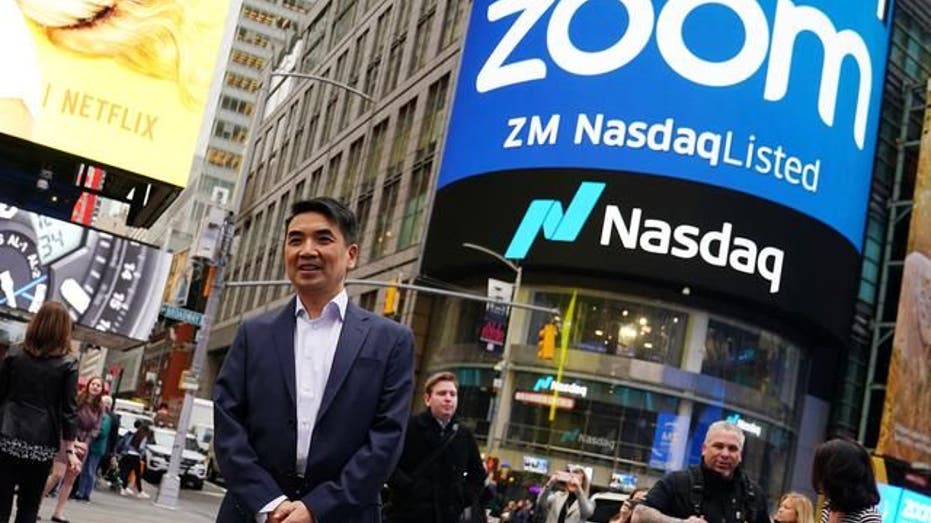
Eric Yuan, CEO of Zoom Video Communications poses for a photo after he took part in a bell ringing ceremony at the NASDAQ MarketSite in New York, New York, U.S., April 18, 2019. (REUTERS/Carlo Allegri)
“We’re sure you agree that taxpayers’ money should not be sent to a dangerous Chinese state-run bio-agent laboratory that lacks any meaningful oversight from U.S. authorities,” the members wrote. “We hope to ensure that WIV will not receive federal funds in any future spending packages,” they wrote.
Less than a week later, EcoHealth Alliance Inc., a New York-based grantee working on the project with the Wuhan lab, said the NIH had terminated coronavirus research funding.
GET FOX BUSINESS ON THE GO BY CLICKING HERE
“International collaboration with countries where viruses emerge is absolutely vital to our own public health and national security here in the USA,” the group said in a statement, declining to comment further.
The NIH confirmed in a statement that the six-year, $3.4 million grant had been terminated. It said the money was distributed among both the primary awardee, EcoHealth Alliance, and sub-awardees including the Wuhan Institute of Virology, East China Normal University in Shanghai, the Institute of Pathogen Biology in Beijing, and Duke-NUS Medical School in Singapore.
The NIH added: “Please note, scientific research indicates that there is no evidence that suggests the virus was created in a laboratory.”
CLICK HERE TO READ MORE ON FOX BUSINESS




















